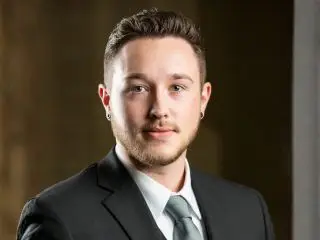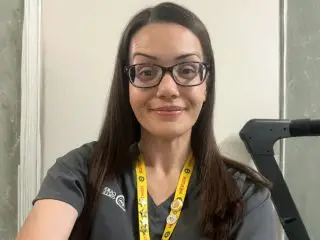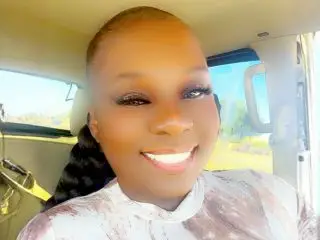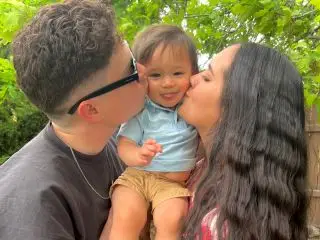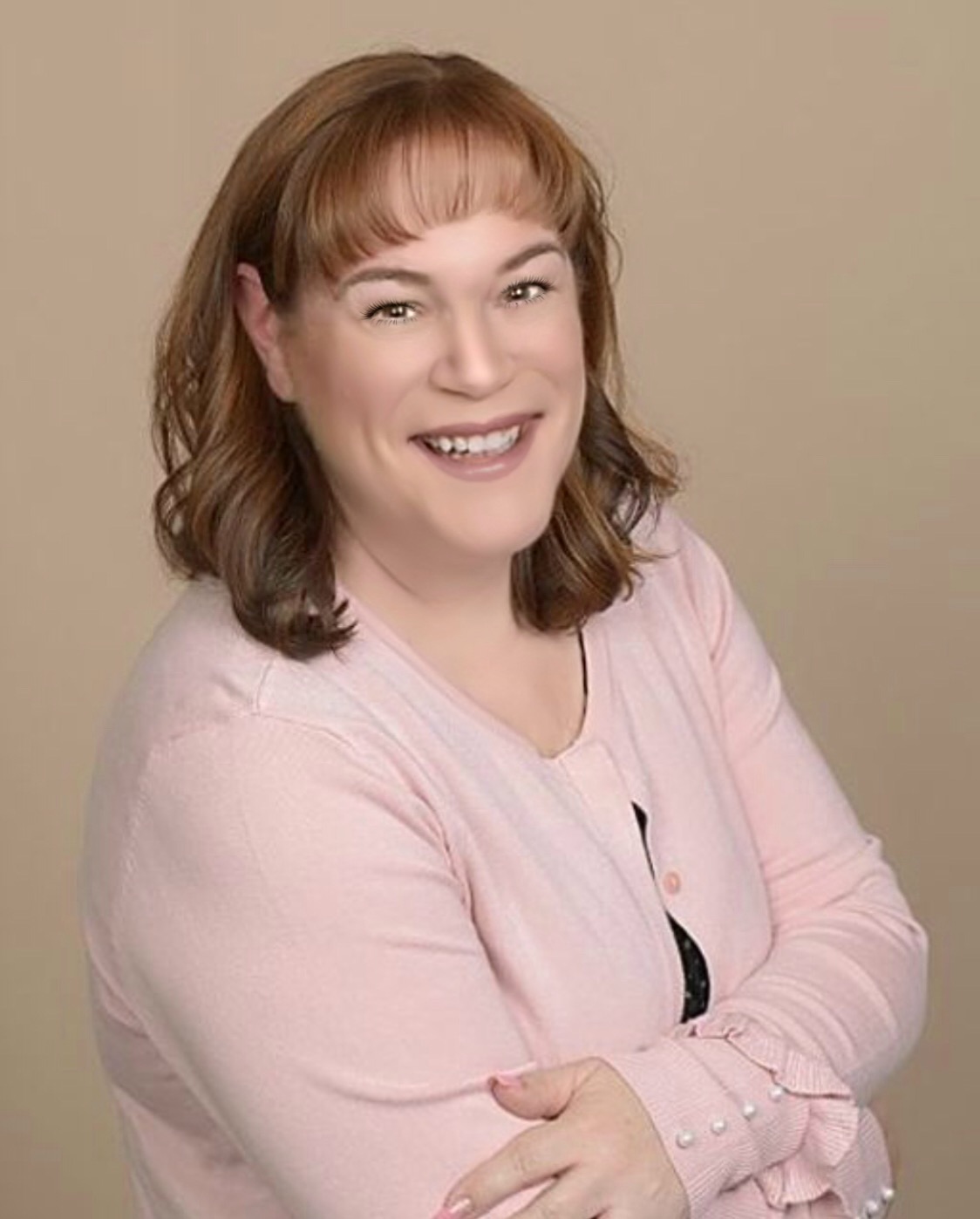 Laura Simmons began the Veterinary Technology program in September of 2020. Her instructor, Amy Abel, noticed Laura as a dedicated student who went the extra mile to thoroughly learn the material. “When I would read Laura’s responses to homework questions, she wouldn’t just provide a simple answer—she would dive deep into the theory behind it,” says Amy. “She strived to do her personal best and would always achieve above expectations. She excelled in terminology, and this is what helped her pass her state board exam and the Veterinary Technician National Exam (VTNE).” Amy says that Laura’s greatest strengths as a vet tech are her passion for animals and her dedication to do the right thing. Although Laura faced challenges along the way, she persevered, and with the support of her own family and her Carrington family, she graduated in June of 2022. Here is more about her journey to become a vet tech—a dream she had for a long time.
Laura Simmons began the Veterinary Technology program in September of 2020. Her instructor, Amy Abel, noticed Laura as a dedicated student who went the extra mile to thoroughly learn the material. “When I would read Laura’s responses to homework questions, she wouldn’t just provide a simple answer—she would dive deep into the theory behind it,” says Amy. “She strived to do her personal best and would always achieve above expectations. She excelled in terminology, and this is what helped her pass her state board exam and the Veterinary Technician National Exam (VTNE).” Amy says that Laura’s greatest strengths as a vet tech are her passion for animals and her dedication to do the right thing. Although Laura faced challenges along the way, she persevered, and with the support of her own family and her Carrington family, she graduated in June of 2022. Here is more about her journey to become a vet tech—a dream she had for a long time.
What did you do before you became a Vet Technician?
I earned my degree in accounting in 2003, and I worked in accounting for years. I was a single mom raising and supporting my daughter. Even then, though, I had my sights set on becoming a vet tech and had for a long time. I even researched Carrington. When my daughter was eight, I looked into it again, but because it’s a full-time commitment, I just couldn’t do it at that point. I didn’t have support or medical for my daughter and I had to take care of her. Then, in 2020, the pandemic hit and I lost my accounting job. By this time, though, I was remarried, and I found great support from my husband, who encouraged me to finally follow my dream. So, I enrolled in the Veterinary Technology program at Carrington College.
What inspired you to become a Vet Technician?
I’ve always had a passion for animals (right now I have two dogs; one pug and one rescue); it’s just always been what I really wanted to do, but I just fell into the accounting career instead. I’m so happy to have made the change.
What was your favorite part of the program?
I always liked the pharmaceutical side—but learning a whole new kind of math and metric system, that was neat. I just like the camaraderie I developed with the students, and we became so close—toward the end of the program it was five of us and Miss Abel—we just really meshed. It was so positive and special.
What was the most challenging part of the program?
I have a bad shoulder, and toward the end of the second term, I knew I would need major shoulder surgery. I was so discouraged. I wanted to drop out and take a leave, but the program director and my instructor told me, ‘You can’t quit! Your grades are too good, you are too smart, and if you drop out, you’ll have to start over.’ They encouraged me to keep plugging away, and that we’d figure it out. But it was hard to do the hands-on learning because of my shoulder. I started to fall behind on the hands-on lab work. But I kept working hard and driving in every day. I still need physical therapy, but I still work on it on my own. I have a great job at a vet now. I am getting to realize my dream—my daughter, who herself is about to go to university—was at my graduation. We both cried.
Where do you work now, and what do you like about your job?
I work at Monte Vista Small Animal Hospital, and I work with really positive, good people, so I like that. I also enjoy the different challenges we have every day. You see the puppy exams, which are fun. Then you also see the ones who are hurting, the ones you can help. You know you are making a difference in that pet’s life because they can’t speak for themselves, they can’t tell you what hurts, and seeing them go home and feel better—it gives me a really warm feeling.
Do you have any advice for someone who is just starting the Veterinary Technology program?
I would tell them that it is not easy, but it’s important. What you are doing is bigger than what you maybe even believe right now. Perhaps you believe you love animals, but you are part of a bigger picture than you realize. When I was in the program, I focused on terminology; I studied it closely and I broke down the words. You have to study a lot—it’s not easy but it is so worth it.
